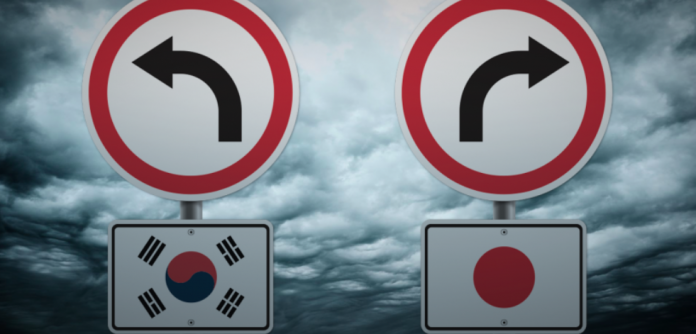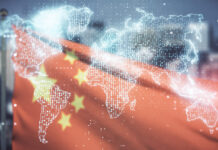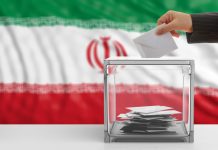South Korean and Japan are yet again embroiled in a controversy, this time involving a pair of statues installed in a botanic garden in the county of Pyeongchang in the north east. The statues, called “Eternal Atonement”, features a man on his knees on the ground, bowing low in front of a woman sitting on a stool. The female is a representation of comfort women, an issue which has been a contentious point between the two countries. However, it is the male statue that has gotten Japan all riled up, as it is said to represent Prime Minister Shinzo Abe.
Yoshihide Suga, Japan’s chief cabinet secretary, quickly responded to the assertions that the male character is their Prime Minister, saying, “If the reports are accurate, then there would be a decisive impact on Japan-Korea relations. I think such a thing is unforgivable under international courtesy.”
The South Korean public is divided in the issue, with some taking to social media to express their dismay at the diplomatic implications. The major point being that such a representation of a neighboring world leader is disrespectful. Others say that it is a mere reflection of the current state of affairs.
However, the owner of the statues, Kim Chang-ryeol, denies that this was his intention when he commissioned the piece of art. He has been quoted as saying, “The man could signify any man that has to apologize to the girl. It can be her father or just any man that you could imagine.”
“It is a sculpture who tries to show that forgiving is possible only if Japan continues to ask for atonement until South Korea accepts it,” he continued.
A statement to Reuters leaves no doubt as to his feelings on the issue, though, as he said that “if that person is Abe, then that would be good.”
Furthermore, South Korean media has consistently reported that the man in the statue is indeed Prime Minister Shinzo Abe, citing the statues’ creator as their source.
The South Korean government has been relatively silent on the matter, only admitting to the need for international comity but releasing no official stand on how private citizens and their actions come into play.
Relations between two of the leading Asian countries have always been tenuous at best, with roots of dissension going back to the colonization of South Korea in the early 1900s. Fast forward to the 21st century, and the normalization of relations between Japan and South Korea has got a long way to go.
The two nations have been locking horns on issues such as the comfort women, forced wartime labor, as well as the sovereignty of some islands.
They have also been actively engaged in economic disputes and penalties. In 2018, the South Korean Supreme Court dictated select Japanese companies to provide compensation to workers (or their families) who were forced into labor during the war. Japan contested this, citing the 1965 treaty which was supposed to have settled the issue. Facing an impasse, Japan decided to impose restrictions on high-tech exports to its neighbors.
More shots have been given and taken in the trade wars between the two countries, even spreading to international security matters when South Korea decided to discard an intelligence-sharing pact with Japan.
World economists have raised worries regarding the trade wars between Japan and South Korea to have massive international impact.
Earlier this month, tensions were somewhat alleviated when the scheduled seizure of assets of Nippon Steel by the South Korean government didn’t go through. While this does not mean that it won’t happen, the Japanese company has the option to appeal the court’s decision and the turn of events has given both economies breathing space.
However, with “Eternal Atonement” in the picture, there is a new bump in the path to normalization of the two countries’ relationship. If Seoul does not take decisive action to assure its counterpart that it is dedicated to repairing and building ties, Tokyo may very well take this as a serious affront. It has already stated that there will be a “decisive impact” if the reports of the statue were true. Diplomatic and economic ties are already hanging by a thread. Perhaps Seoul should be asking if this piece of art is worth further endangering these ties.




































































